The People of Kali Beri Settlement: Pakistani Migrant Struggles in India
Divya Sharma
For 17 years, displaced Hindu families from Pakistan have found refuge in Rajasthan, India. Divya Sharma’s photo essay discusses the implications of citizenship and statelessness, and the ways in which the marginalized manage to maintain hope.
About 200 Hindu families displaced from Pakistan have made Kali Beri their home. First settled 17 years ago, Kali Beri is government-owned land located approximately 18 kilometers (11 miles) from Jodhpur in the state of Rajasthan, India. Locals also call it “Bhil Basti”: Bhil refers to the caste and basti is a local term for an unauthorized and unorganized colony. There are many such settlement camps in the rest of state of Rajasthan (Jaisalmer, Bikaner, Barmer and Ganganagar) as well as the country (Punjab, Haryana, Gujarat and New Delhi). Since the partition of India in 1947, refugees have continued to seek shelter in India. While researchers and journalists have written extensively about the 1947 exchange of populations, there has been scant attention given to the continued flow of refugees from Pakistan to India. In 1965, about 10,000 refugees came to India, followed by about 90,000 more in 1971. About 55,000 of these refugees were resettled in Barmer District of Rajasthan following the 1971 India-Pakistan war as part of the rehabilitation package declared in 1977-78. Officially, these displaced families are not given the status of refugee. But, the terms ‘refugee’ and ‘migrant’ are used interchangeably by volunteers, the media, and the affected people themselves.
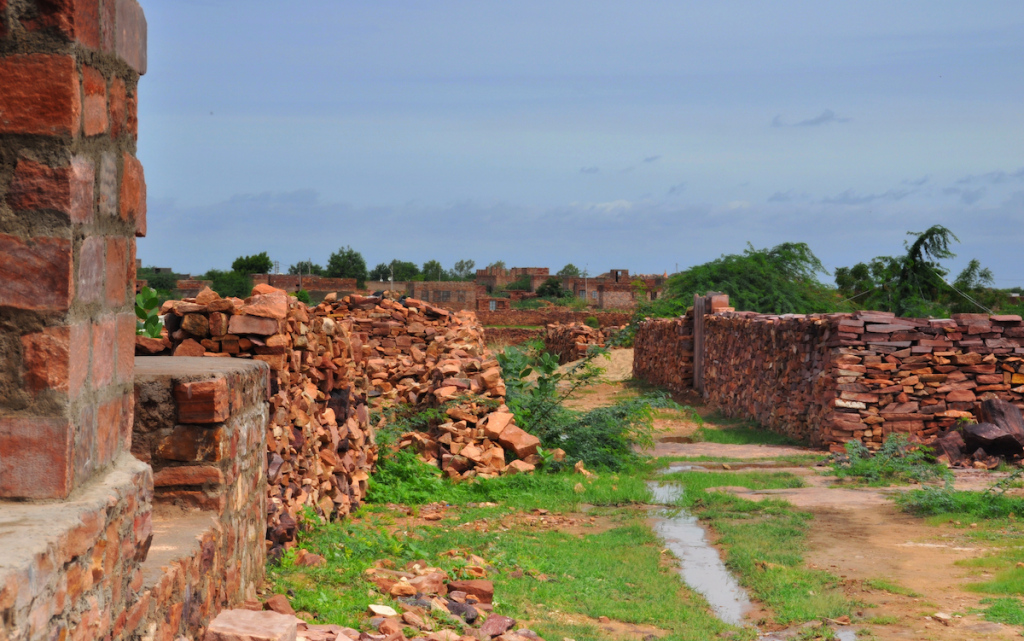
A vast majority of families living in Kali Beri are extremely poor lower-caste Hindus who migrated to India to escape religious persecution and economic struggles in Pakistan. When asked, these families told stories of forced conversions, kidnappings, rapes, and murders. They talked about the absence of any legal recourse. Most of them did not know how to get the resources they needed or take advantage of the services provided by human rights activists or non-governmental organizations in Pakistan. Their only option was to migrate to India. But to obtain visas, they had to face corrupt officials, steep bribes, and uncertainty on both sides of the border.
Their hardships did not end in India, either. In the settlement of Kali Beri, migrants’ daily struggles range from tackling corruption and bureaucratic delays as they try to meet their daily needs of food, water, healthcare, and education. There is no electricity in Kali Beri. Nor are there roads, or any other forms of basic infrastructure. Only in 2012 did a local member of legislative assembly get the connection for potable water set up. There are no proper toilets or sanitation facilities. Most homes are made of brick, clay, stones, and tarp. Roofs often leak when it rains and people live exposed to the elements.
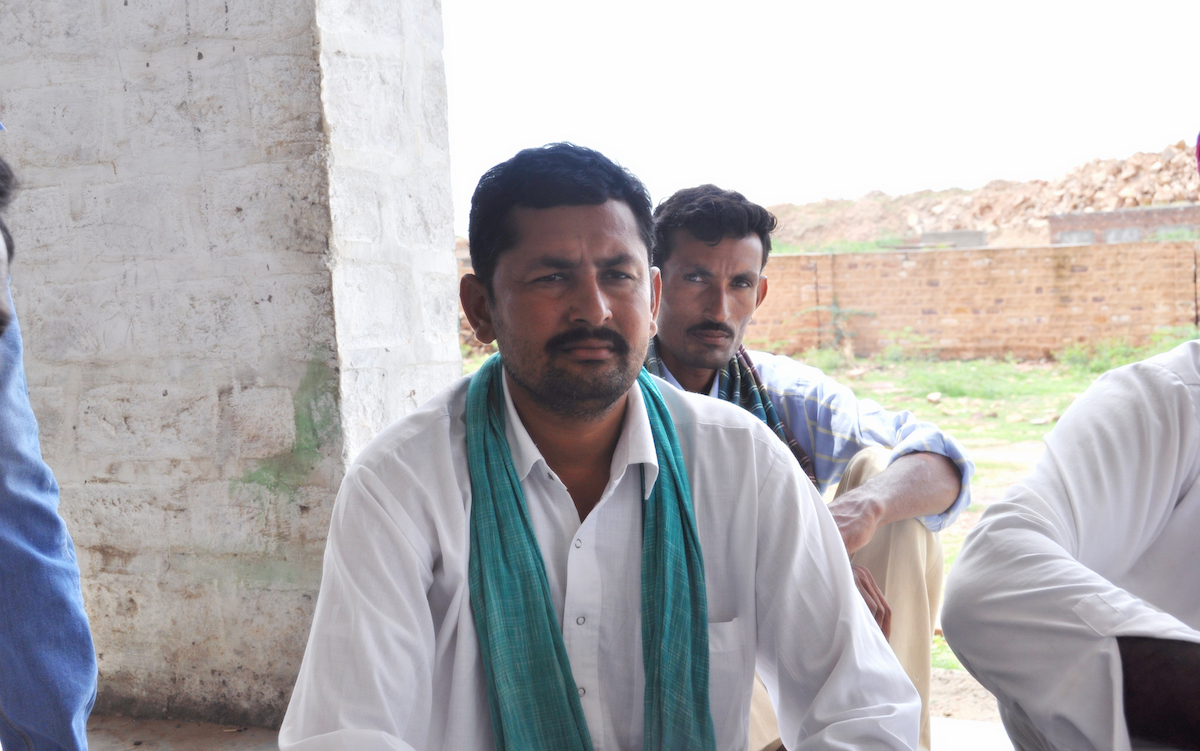
The Men: Most men in the Kali Beri settlement were once landless farmers or daily laborers in Pakistan. But in Jodhpur and surrounding areas, they cannot find adequate work in farming and so, they are absorbed by the quarries. It is not the kind of work that they are used to doing and it takes a toll on their minds and bodies. Nor does it pay well: they cannot make enough to meet their children’s schooling costs and they struggle to make ends meet.
Many young men in the Kali Beri settlement want to go to other cities in order to seek better work opportunities and pursue higher education. They want to find jobs other than the ones to which they are often relegated – day or contract work in quarries and agriculture. But the lack of support system buries their aspirations and they are forced to remain underemployed and unemployed.
Migrants who do leave Jodhpur in search of better work are vulnerable to India’s apathetic criminal justice system. Most migrants come to India on visas designated for specific districts. To travel anywhere else in the country, they must report to the local police station and seek additional permission. In the process, many have to pay bribes, spend time in jail, or both. This is equally common when they travel to other regions to perform agricultural work, get married, and visit family and friends in other parts of the state or country.
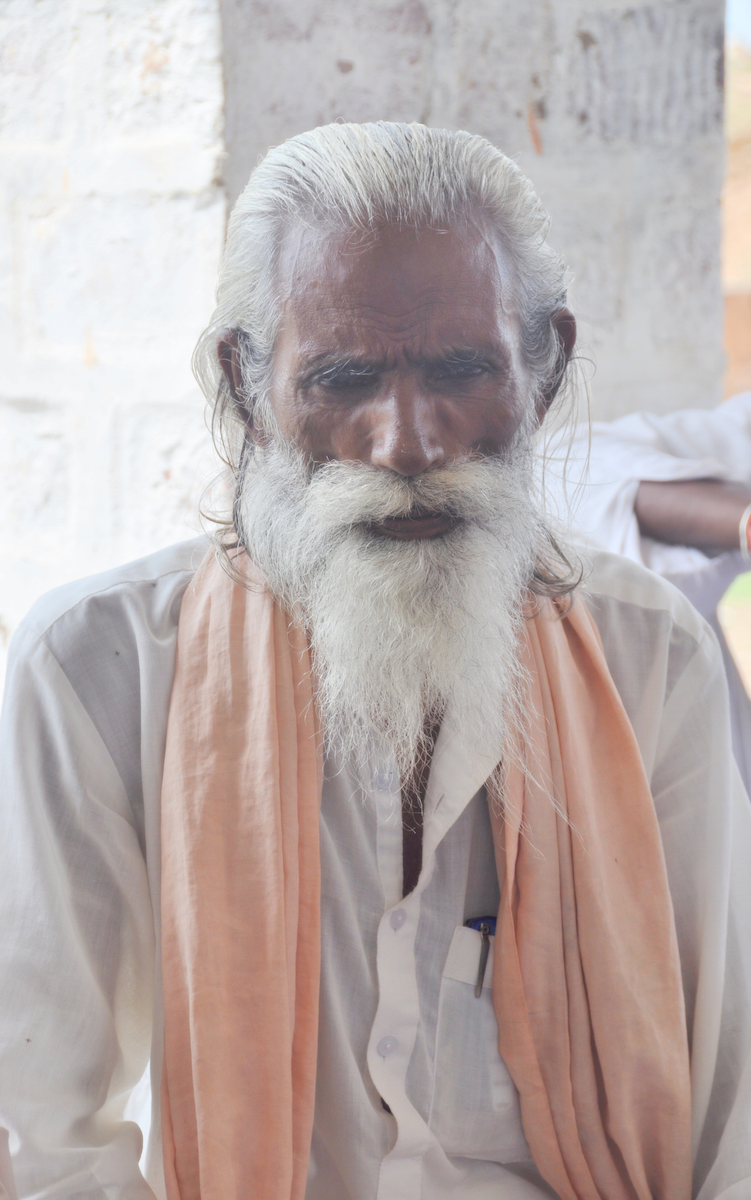
Stateless, Statusless and Invisible Indians: “I am an Indian,” is a common sentiment in Kali Beri. Nonetheless, refugees from Pakistan struggle for legal recognition. While most refugees who arrived in India in 1947 (the year of the Partition) were more or less accepted as Indian citizens, Kali Beri refugees migrated after 1947, and faced a multitude of challenges in acquiring Indian citizenship. Even families who have acquired Indian citizenship remain on the margins of society: without caste and below poverty line (BPL) certificates, they cannot access subsidized food or apply for spots (in schools and jobs) that are reserved for members of lower castes (Scheduled Castes and Scheduled Tribes). New migrants arriving every week have no realistic sense of how long these legal processes may take.
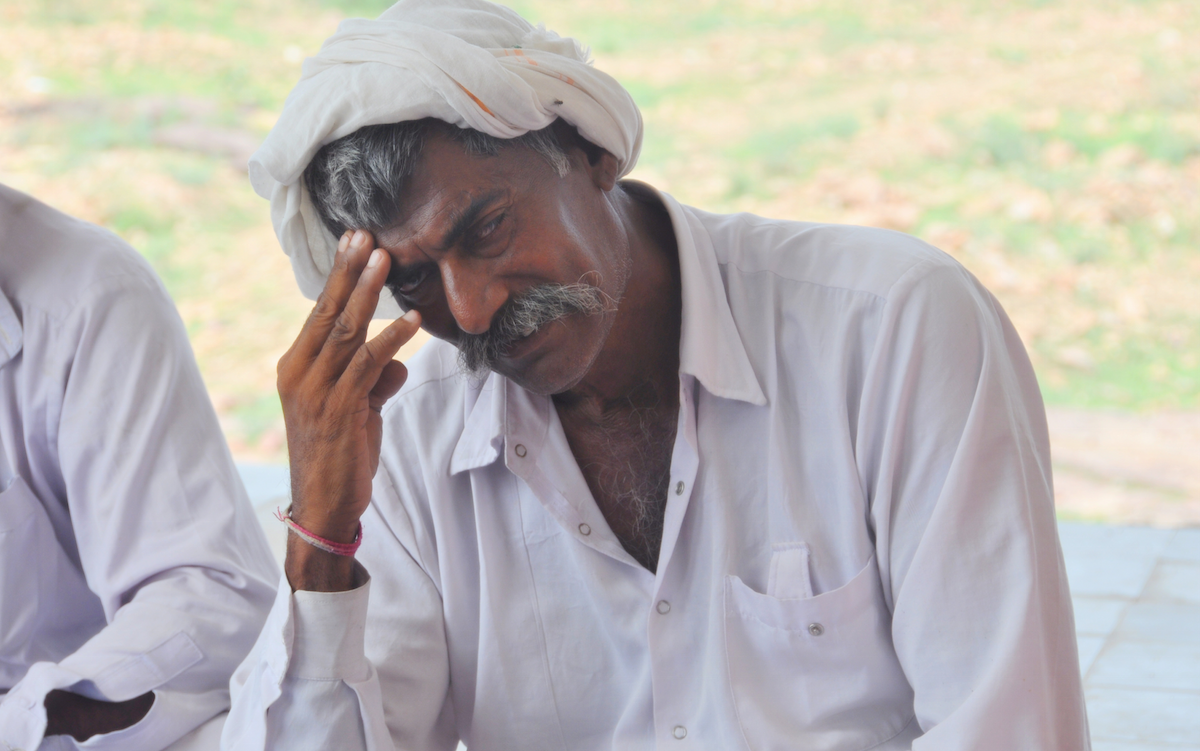
Over the years, politicians from different parties have visited these families, received letters and petitions on behalf of these families, and made promises to these families. But these promises have yet to be translated into something concrete. The process of acquiring Indian citizenship has grown more expensive and time-consuming. The time it takes just to be eligible to apply for citizenship has increased from five years to seven years. Even after meeting the eligibility requirement, many applicants continue to wait up to 14 years.
In the words of one of my respondents, “Many have died waiting for citizenship. Many have got citizenship, but their lives are on hold as they wait for caste and BPL certificates. We do whatever work we can find and provide for our families and wait. Just wait.”
Despite innumerable public debates about the poor and other vulnerable sections of Indian society and despite lengthy discussions about women’s rights and children’ education, the media has rarely highlighted the plight of the people living in Kali Beri settlement. Nor has the media taken an interest in refugees from Pakistan, more generally. It is as if these thousands of families do not exist at all.
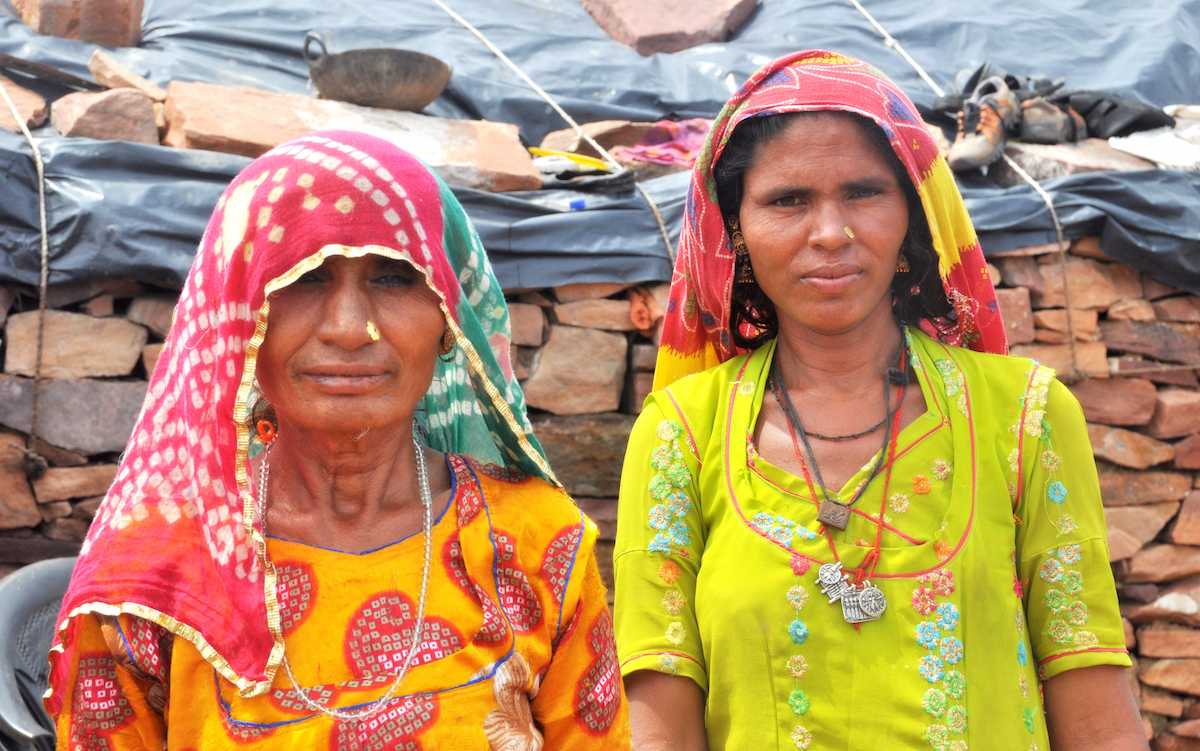
The Women: The women of Kali Beri proudly welcome visitors into their homes. The women try their best to keep their homes clean and tidy. Family members remove their shoes before entering their houses and ask visitors to do the same.
With little or no education, young women have even more limited choices than young men. Most are married off at a young age.
Hardships abound. One woman talked about killing snakes during the rainy season in order to protect her grandchild. Many women complained of falling ill and not being able to see a doctor. Most had never had a medical check-up. Volunteer-led medical camps are too infrequently set up to provide any sustainable and consistent medical care.
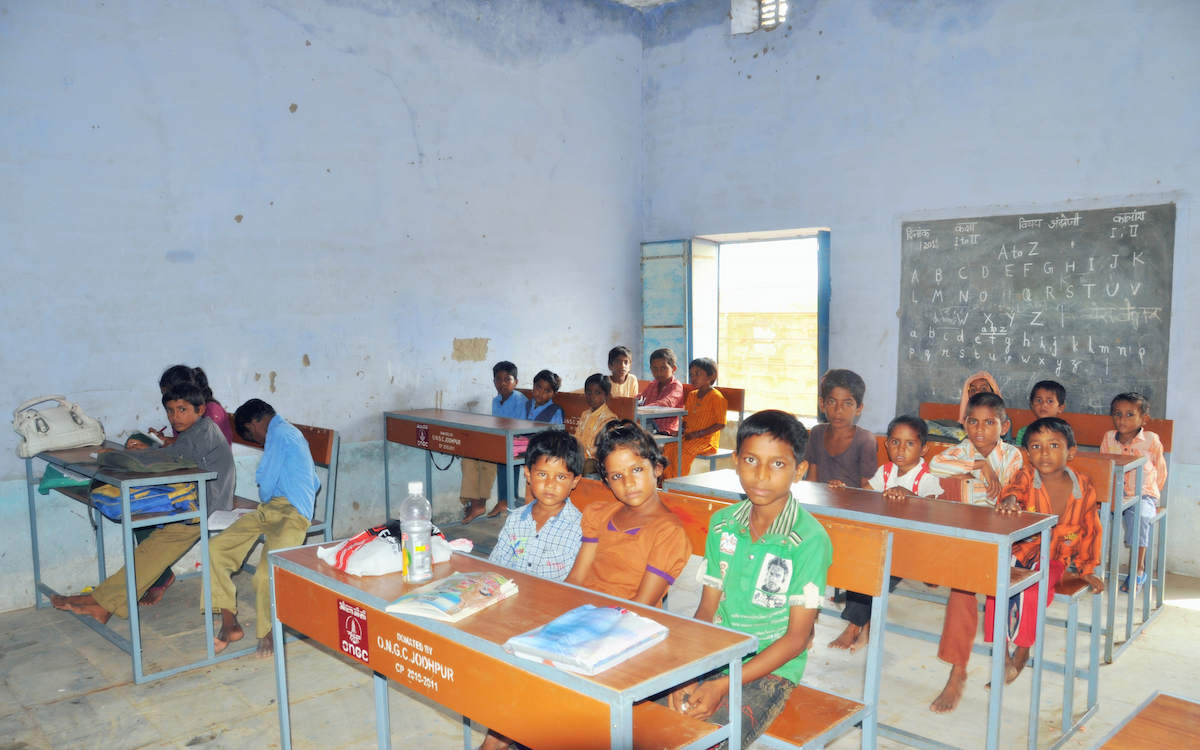
The Children: Most Kali Beri families have young children and parents worry about their future. Most refugee children were pulled out of school in the middle of the academic year in Pakistan. When they arrive in India, there is no clear provision regarding how they would continue their education in their new country. To address this gap in schooling, a community-based organization, the Universal Justice Society (UJAS), has been trying to set up makeshift classrooms that can be run by its volunteers until more permanent options become available, but it has not materialized yet due to limited finances.
There is, however, a government-run school in Kali Beri. It has classes till fifth grade and caters to about 60 to 70 children. All classes are taught by one teacher and the resources available to her are extremely limited.
Some more shy than others, children talked about their dreams of becoming doctors, actors, and teachers. They shared stories about their best friends in the settlement. In any society, investing in human capital is critical; but most children here cannot afford to study beyond the 8th or 10th grades. These children do not get adequate assistance from the government. At a young age, they are burdened with financially helping their families.
Under the Government of India’s Midday Meal Scheme, children receive free lunch on weekdays. But, because there is no proper system of roads in the settlement, children are forced to run about a kilometer to reach the one road where the delivery truck arrives carrying their midday meals. This daily struggle raises questions of basic human dignity: It is the obligation of the government to deliver basic services in a dignified manner and not as a favor, or worse, an insult.
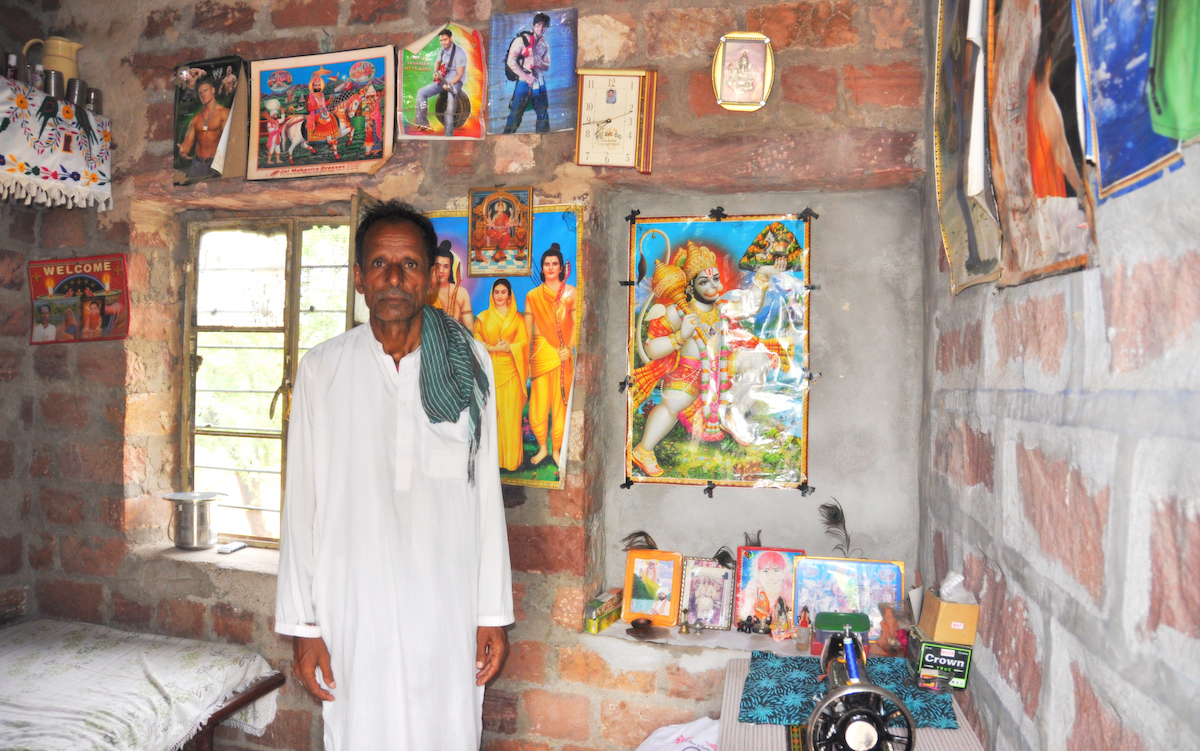
Faith: People in Kali Beri have built a small temple. Many of the settlers say, with a mix of pride and sadness, that all that were able to save and bring with them to India is their faith. Faith is especially important in a community where many have lost family members and friends to violence and poverty.
Despite the hardships that they face, the people of Kali Beri remain hopeful and lean on their faith for strength. They have made Kali Beri their home and hope to acquire legal right to the land on which they have been living for years. But mining in the area threatens even the parcel of land that the settlers use as a cremation ground. The fear of being displaced again is a common one.
New Refugees, Same Struggles: The newly-arrived refugees do the same things as those who arrived before them: women cook, talk amongst themselves, and care for the children, while men acquire guidance from UJAS about finding employment, shelter, and schooling for their children. Like those before them, the newly-arrived refugees have left family members behind in Pakistan and hope to make India their home.
The Universal Just Action Society (UJAS; formerly Seemant Lok Sangthan) is a volunteer-run organization headed by H.S. Sodha. H.S. Sodha is himself a migrant from Pakistan. After informally helping others like himself for many years, H.S. Sodha formally founded UJAS in 1999 to do social and legal advocacy work on behalf of migrants. He runs the organization out of his house and it is open to everyone. He also makes monthly visits to cities within and outside of the state of Rajasthan. He leads protest, meets with politicians and activists in the hope of addressing the migrants’ problems, without politicizing the issue. Interns from India and the United States have worked for UJAS.
H.S. Sodha meets with migrants in the field, listens to their problems, and makes arrangements to address their immediate needs, such as scheduling medical checkups, acquiring food, and finding shelter. Additionally, the organization has helped approximately 13,000 migrants successfully get their Indian citizenship.Many people that UJAS has helped in the past, volunteer for the organization by traveling with H.S. Sodha and providing assistance to others. But these makeshift arrangements are unsustainable in the long-run.
Governments at the state and central level in India have put together schemes to alleviate poverty, safeguard the rights of women and children, and bring people of lower castes into the mainstream. On the basis of these criteria, thousands of the migrant families in Kali Beri qualify for assistance, but have not received it. Under the new government elected in 2014, the Union Home Ministry has set up a Task Force to facilitate citizenship to Pakistani Hindus. But a task force is insufficient: there needs to be a sense of urgency and more clarity of purpose.
What Should Be Done: There are fairly straightforward steps that the Government of India could take to bring immediate relief to migrants living in Kali Beri and other parts of Rajasthan. These include the resolution of all pending citizenship applications in a timely manner as well as the immediate provision of Below Poverty Line and caste certificates to migrants in different stages of the immigration process. Moreover, local offices should be set up to address grievances so that refugees do not have to travel out of state and face potential abuse by local and state agencies. To protect migrants from harassment by local authorities, the police and administrative authorities should be made aware of the problems that migrants face. Additionally, the Government should provide adequate sanitation facilities and electricity in Kali Beri and other similar settlements. This would be part of a larger effort to transform these makeshift settlements into places of permanent residence so that refugees do not have to live in the fear of being displaced again. At the same time, the medical and educational needs of the community should be addressed. Refugees should have immediate medical care upon arrival in India as well as free, regular medical checkups later. Local schools should be encouraged to admit migrant children while their legal status is being established and there should be more resources put into the school in the Kali Beri settlement. The most effective way to deliver these services is to coordinate efforts with groups like UJAS that are familiar with problems at the grassroots level. As the number of refugees increase on a global scale, these straightforward local measures would ensure that the human rights of this particular group are protected.
